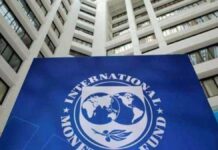–Chamber says lack of economic documentation, bad tax measures keeping investors at bay
–Says investors uncertain about govt’s ability to implement tough decisions
ISLAMABAD: While giving tax proposals for the next year’s budget, the Overseas Investors Chamber of Commerce and Industry (OICCI) claimed that some new tax-related measures introduced by the government, coupled with the FBR’s failure to document the economy, had badly shaken the confidence of the country’s investors.
According to a copy of the tax proposals prepared by OICCI, “A number of new measures, including an increase in minimum tax rate to 1.5pc, abolishment of tax credit on investment in BMR (balancing, modernization and replacement), halting the gradual decrease in corporate tax rate to 25pc by tax year 2023 and freezing the same to 29pc etc., has dented the confidence of the large investors in Pakistan.”
Moreover, the chamber stated the government/FBR’s failure to smoothly implement its economic documentation initiative like ‘CNIC on retailers for purchases in excess of Rs50,000’, and ‘curbing the sale of non-duty paid locally produced and smuggled products’, like cigarettes, petroleum etc., had also created uncertainty regarding the government’s ability to implement tough decisions.
“The existing tax legislation, and more so its enforcement, based on years of experience, is very cumbersome and a serious deterrent in boosting the tax to GDP ratio to a reasonable level,” the chamber highlighted. “Major reforms are needed to meet the high standard set by the government in its Ease of Doing Business initiative.”
The OICCI suggested the government to consolidate all federal taxes, including income tax, and levies like Workers Welfare Fund and Workers Profit Participation Fund, in one lump sum so as to make the system more efficient and business friendly.
It further recommended the government to automate its departments and reduce interaction with the businesses — no more than one audit in a year.
The OICCI stated that the government should restrict tax collection to the actual tax liability while reviewing the Minimum Tax Regime (MTR) and abolishing Alternative Corporate Tax (ACT).
“The general rate of MTR under section 113 of ITO 2001 should be reduced to 0.5pc. MTR should be reduced to 0.2pc for oil marketing companies/refineries/LNG terminals, large chemical companies, authorised dealers of local cars and large traders dealing in sectors with high turnover and low margins.”
The chamber also proposed revamping of the Withholding Tax Regime (WHT) by reducing it to a maximum of five rates only, while the differentiation should be on basis of active and inactive taxpayers only.
According to OICCI, there was a need to rationalise sales tax rates, wherein the rates (federal and provincial), both on goods and services, should be harmonized throughout the country and be aligned to 13pc charged in Sindh.
Regarding the outstanding tax refunds, the chamber suggested that all pending tax refunds be cleared within next six months in a prearranged manner. “Verification process for refunds should start automatically as soon as an application for refund is filed by the taxpayer and tax refunds should be cleared within 45 days. A timely settlement of the determined refunds should be made, and if there is a liquidity issue then issuing marketable government bonds/securities be considered.”
The OICCI proposed the government to reduce the number of payments and filing frequencies “as a large number of payments and filing of various returns is a cause of great hardship for taxpayers and a major reason for tax evasion/non-registration”.
To incentivise the new investors, the OICCI proposed that the tax credit timelines on new investment may be extended up to FY2023 to facilitate investment in long-term projects.
“Besides, the rate of initial depreciation allowance under section 23 should be increased from the current 25pc to 50pc for plant and machinery. WHT on import of raw materials and plant and machinery by industrial undertakings be substantially reduced from 5.5pc to 2pc.”
Regarding the coordination between federal and provincial legislations, the chamber suggested that the synchronization of sales tax rates and policies needed to be harmonized across all jurisdictions and sectors and closely aligned with the regional benchmark of 12pc sales tax rate.
It also suggested the government to ensure one authority collected all types of federal and provincial taxes for onward transmission to respective revenue authorities within the country without burdening the business entities. Single sales tax returns should be filed with FBR instead of separate sales tax returns for each province.
Regarding documentation and broadening of tax network, the chamber proposed that all income earners should get themselves registered and obtain proper NTN while FBR should immediately implement the recommendations of the Tax Reforms Commission.
“The tax authorities should make better/effective utilization of NADRA database and other documented sources to ensure that all income earners are NTN holders (NTN is replaced with CNIC so why are we mentioning this here) and filers, with submission of annual income tax/wealth returns and wealth reconciliation statements.”

























